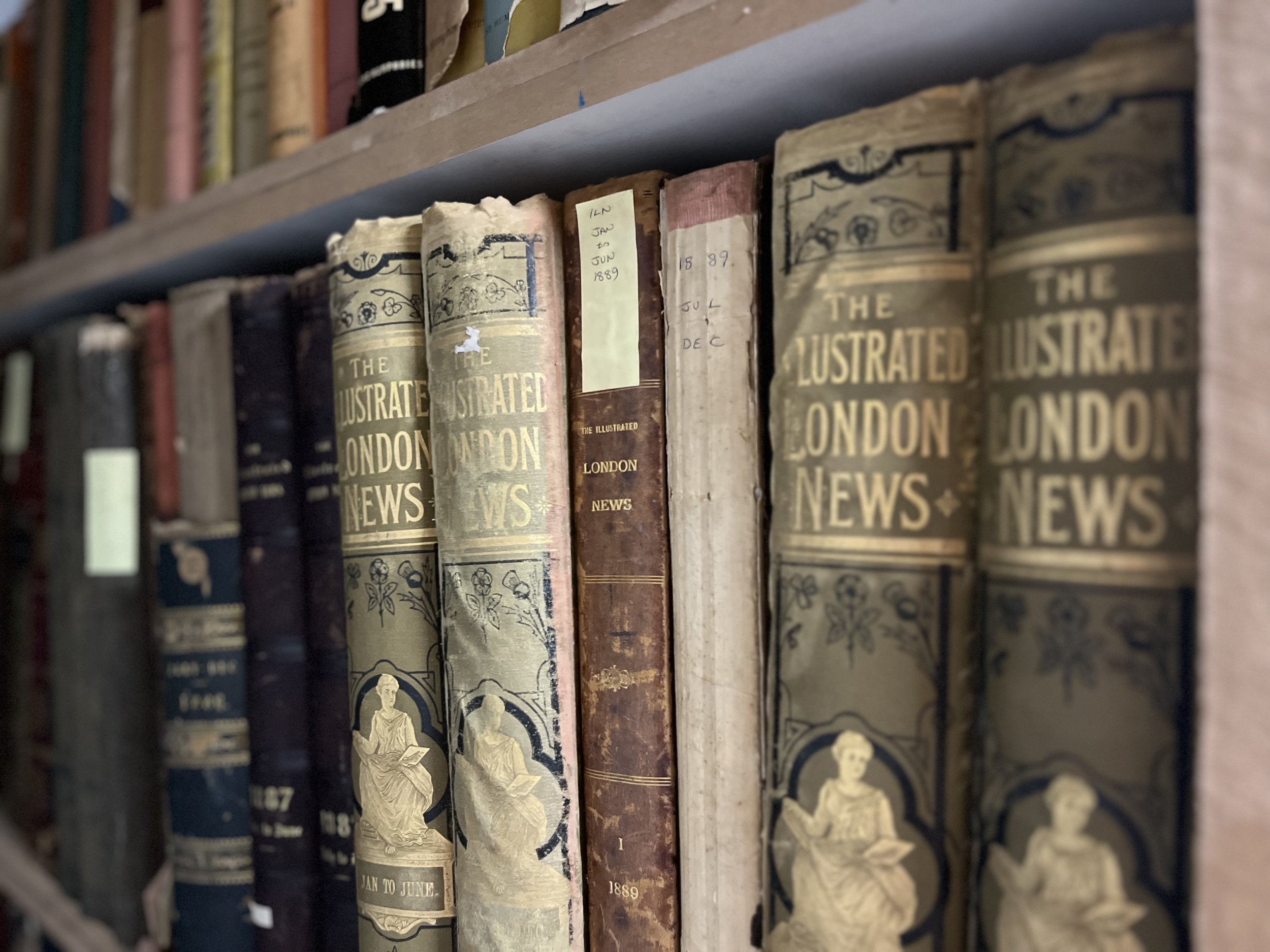
About the archive
Preserving the Past,
Inspiring the Future
The story behind the vintage advertising archive
Nestled in the heart of Stockport lies a treasure trove of advertising history – the Richard Roberts Archive. This remarkable institution was born from the passion and dedication of Richard Roberts, an enthusiastic collector with an insatiable curiosity for the stories behind the ads that shaped our world.
For over two decades, Richard has meticulously curated a one-of-a-kind vintage advertising archive, driven by the belief that these print ads serve as captivating snapshots of change throughout the ages. What started as a private collection soon blossomed into an extensive magazine archive, housing a wealth of print advertisements spanning centuries.
Each piece within our vintage advertising archive offers a unique window into the past, providing researchers and enthusiasts with an opportunity to explore the changing fashions, speech patterns, and cultural norms that these advertisements so vividly captured.
From working-class newspapers to high-society magazines, our advertisement archive embraces the diversity of intended audiences, revealing the intricate tapestry of social dynamics woven into the fabric of advertising narratives. Whether it's a glamorous fashion illustration from the Roaring Twenties or a bold, pioneering automobile advertisement promising power and performance, our advert archive preserves these precious moments in time, ensuring that their stories continue to resonate with future generations.
At the core of our mission is a commitment to public access and preservation.
We strive to connect researchers with the fascinating history of daily life and industries, as told through the lens of advertising. Through public presentations, ongoing digitization efforts, and a dedicated team of experts, we aim to make this invaluable resource accessible to all, encouraging exploration and igniting a passion for the art and storytelling that defined the golden age of print advertising.
Our commitment to preservation extends beyond the printed page. We meticulously maintain each piece in our magazine archive, ensuring that these advertisements remain in their original context, surrounded by the editorial articles, opinion pieces, and social commentaries that once graced the same pages. This holistic approach allows researchers to fully immerse themselves in the zeitgeist of the era, gaining a comprehensive understanding of the cultural landscape that shaped these captivating advertisements.
Join us on this remarkable journey through time, where the essence of advertising history comes alive with every turn of the page, every striking illustration, and every captivating narrative. Together, we can preserve this invaluable cultural legacy and ensure that the art of vintage print advertising continues to fascinate and inspire audiences for generations to come.
The value of this remarkable archive extends far beyond mere nostalgia or artistic appreciation.
Our values
Social history
We aim to preserve, and make available for research, print advertising of any products, in any language and from any period.
The text and images of advertising serve to document changing fashions in everything from speech, clothing, food and transport to entire companies or industries.
The chosen media is also vital to the understanding the intended social audience, from working-class newspapers to society magazines.
Public access
Through the Archive collection we aim to connect with researchers to reveal the fascinating history of daily life and industries through advertising.
We currently provide public presentations using materials housed at the Archive and are working hard to catalogue and digitise the collection for easier access.
Through this we encourage the public to carry out research with the Archive and to spread the word about our collection.
Preservation
Our collection policy is the saving and preserving of print publications from all periods that include advertising.
Our acquisition criteria are broader than simply magazines and newspapers. We consider programmes, brochures and catalogues, commemorative books, leaflets and flyers to be equally important.
We aim to acquire complete publications that retain the advertisement’s context.
Our team
Richard Roberts – Chair
Richard is a mechanical engineer and former information technology project manager who first became interested in advertising in the early 2000s.
His interest turned to a passion that led to the founding of the Richard Roberts Archive. The Archive has since developed from Richard’s private collection to a publicly accessible research centre.
He is the director and archive consultant of the Society of Automotive Historians in Britain. He has owned several Rolls-Royce Silver Shadows and a rare 1956 James Young Silver Cloud saloon.
Dr. Craig Horner – Trustee
Craig Horner is a senior lecturer in history at Manchester Metropolitan University. His research is in late-Victorian mobility, especially cycling and motoring.
He has written on early motoring, most recentlyThe Emergence of Bicycling and Automobility in Britainpublished by Bloomsbury in 2021 and edits theannual albumAspects of Motoring History for the Society of Automotive Historians in Britain.
Peter Moss - Trustee
Peter is a chemical engineer and industrial consultant with a passion for motoring history that dates back to his very earliest years – his family owning old cars as diverse as a 5CV Citroën and a 4½-litre Bentley.
He is a director, publicity officer and webmaster of the Society of Automotive Historians in Britain and has written articles for specialist motoring publications. He has given talks at the 2017 and 2019 European Motoring History Conferences.
In 2021, Peter and Richard published their joint work Making a Marque, the history of Rolls-Royce promotion from 1904 to 1940, which contains many items from the Archive. It is out now from all good bookshops.
Katie Hilton – Trustee
Katie is a designer specialising in creating engaging experiences for the museum and heritage sector.
She holds an undergraduate degree in Graphic Design and is currently undertaking a postgraduate degree in Heritage and Interpretation. Throughout her career spanning over a decade, she has had the pleasure to develop her hobby of visiting museums into helping other visitors access and enjoy heritage collections such as the Richard Roberts Archive.






